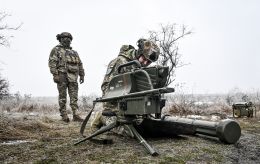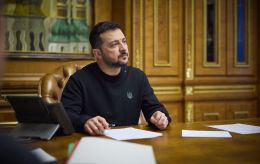Non-existent plan: What Trump thinks about war in Ukraine and how Zelenskyy prepares
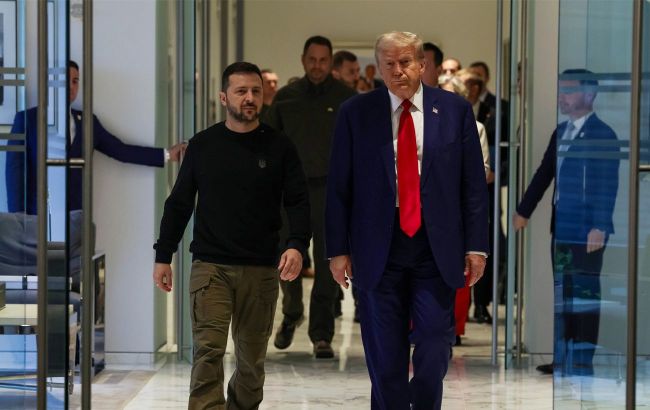 Volodymyr Zelenskyy and Donald Trump at a meeting in New York (photo: Getty Images)
Volodymyr Zelenskyy and Donald Trump at a meeting in New York (photo: Getty Images)
To learn about when Donald Trump's team might present their "plan to end the war in Ukraine" and what it could include, what compromises Ukraine might be pressured into, whether the Ukrainian government is prepared to accept them, how the issues of territorial control and Ukraine's NATO membership could be resolved, whether peacekeepers might be deployed in Ukraine, and which allies Ukraine can rely on the most, read in RBC-Ukraine's article below.
Contents
- How is issue of territorial control to be resolved
- Security guarantees for Ukraine and NATO membership
- Whom can Ukraine rely on and what is its endurance level
It has been nearly three weeks since Donald Trump won the US presidential election. During this time, leading Western media outlets have published at least one, sometimes several, in-depth articles daily speculating on how the future US president plans to end the Russia-Ukraine war. In particular, these materials explore what conditions Washington, Kyiv, and Moscow might accept, which compromises are unacceptable, and related issues.
Most of these articles rely on comments from anonymous sources or, at best, insights from individuals within the US Republican party. Often, these materials boil down to speculation based on Trump's personnel choices for his future administration, his and his allies' social media posts, or even the authors' personal conjectures.
After speaking with multiple high-ranking officials in Ukraine's military and political leadership, RBC-Ukraine concluded that, as of now, the specifics of Trump's "Ukraine plan" remain unknown. Neither Trump nor his team has approached Kyiv with concrete proposals.
The leaks of various "peace plans" and concepts in the media appear to be elements of internal power struggles within Trump's circle, which began well before the election. Similarly, provocative social media posts on Ukraine by figures like Elon Musk or Donald Trump Jr. are part of this broader contest for the new president's attention.
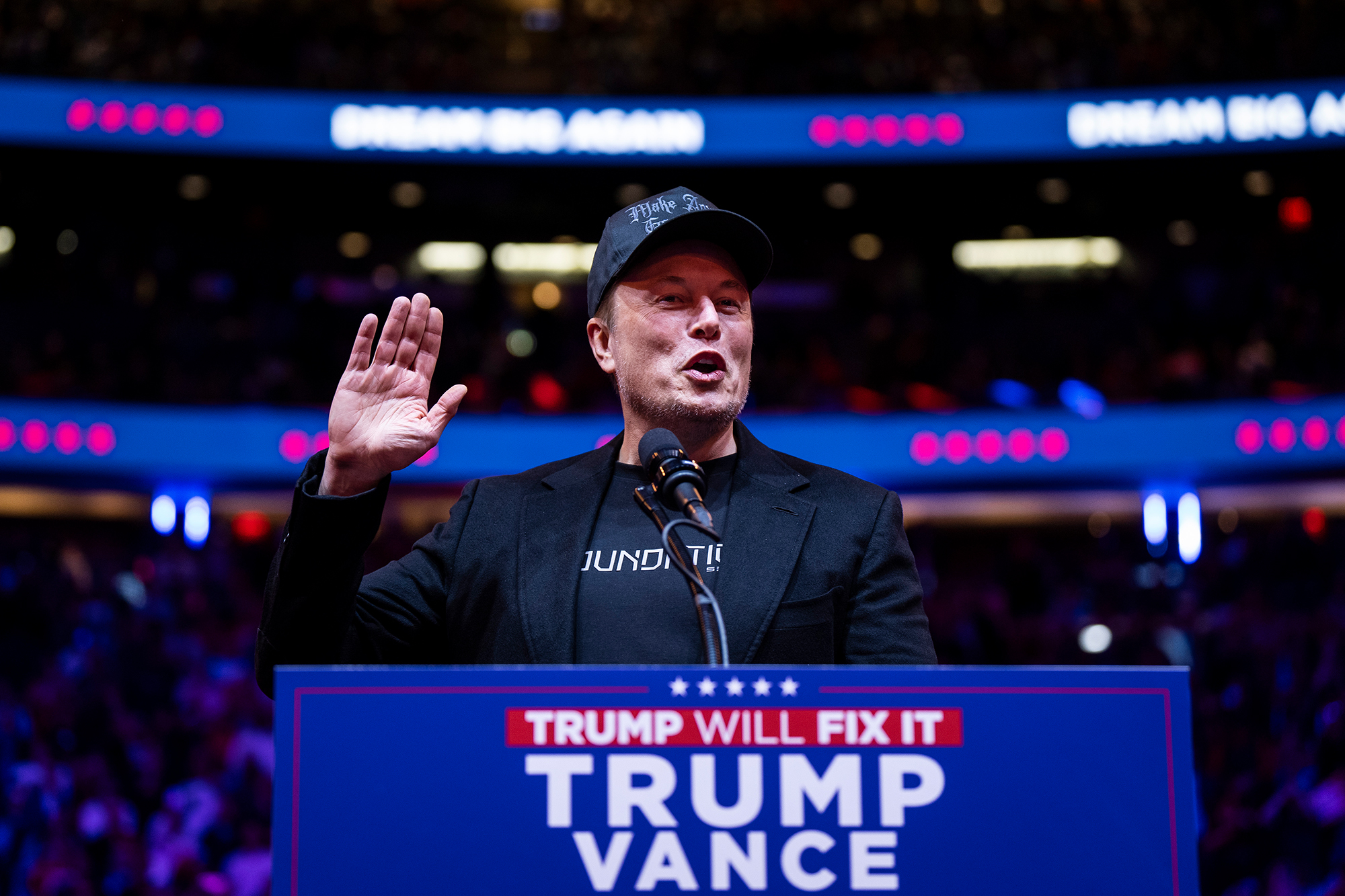
Elon Musk (photo: Getty Images)
For now, Trump is more focused on domestic political issues, which have always been his priority. However, his attention will likely turn to Ukraine soon. A more substantive call with the Kremlin could follow, and the Head of the Office of the Ukrainian President, Andriy Yermak, is expected to visit the US in the near future.
"It's crucial for us to get to Trump before the Russians and push our perspective," a source close to President Zelenskyy told RBC-Ukraine.
According to sources, within the next month, likely by Christmas, the outlines of a potential peace settlement could become clearer. By January 20, Trump's team aims to have a ready-made plan for Ukraine to implement quickly after taking office. While it likely won't happen within Trump's promised "24 hours," the goal is to move swiftly. This "American turbo mode" will extend beyond Ukraine, targeting issues like the Middle East and illegal immigration. For Trump, it's vital to demonstrate decisive action from day one, contrasting himself with his predecessor, whom he frequently dubbed "Sleepy Joe". However, in the case of Ukraine, success is far from guaranteed: the Russia-Ukraine war has escalated to such a scale that many variables remain beyond Trump's control.
How is issue of territorial control to be resolved
Throughout the year, Ukraine's primary diplomatic efforts have been centered around its own mechanisms: the Peace Formula, peace summits, and, later, the Victory Plan. Following Trump's election win, Kyiv has yet to decide how to proceed with these tools. However, Ukrainian authorities are not planning to completely remove them from the table.
The two main and most challenging issues underpinning any potential peace agreement are territories and security guarantees. Ukraine is steadfast in its refusal to formally renounce any territory within its 1991 borders, a stance enshrined in its legislation. However, as an interim option and starting point for negotiations, the pre-invasion borders of February 23, 2022, are being considered. Andriy Yermak has publicly stated this on multiple occasions. President Volodymyr Zelenskyy has also emphasized that Ukraine could return Crimea through diplomatic efforts.
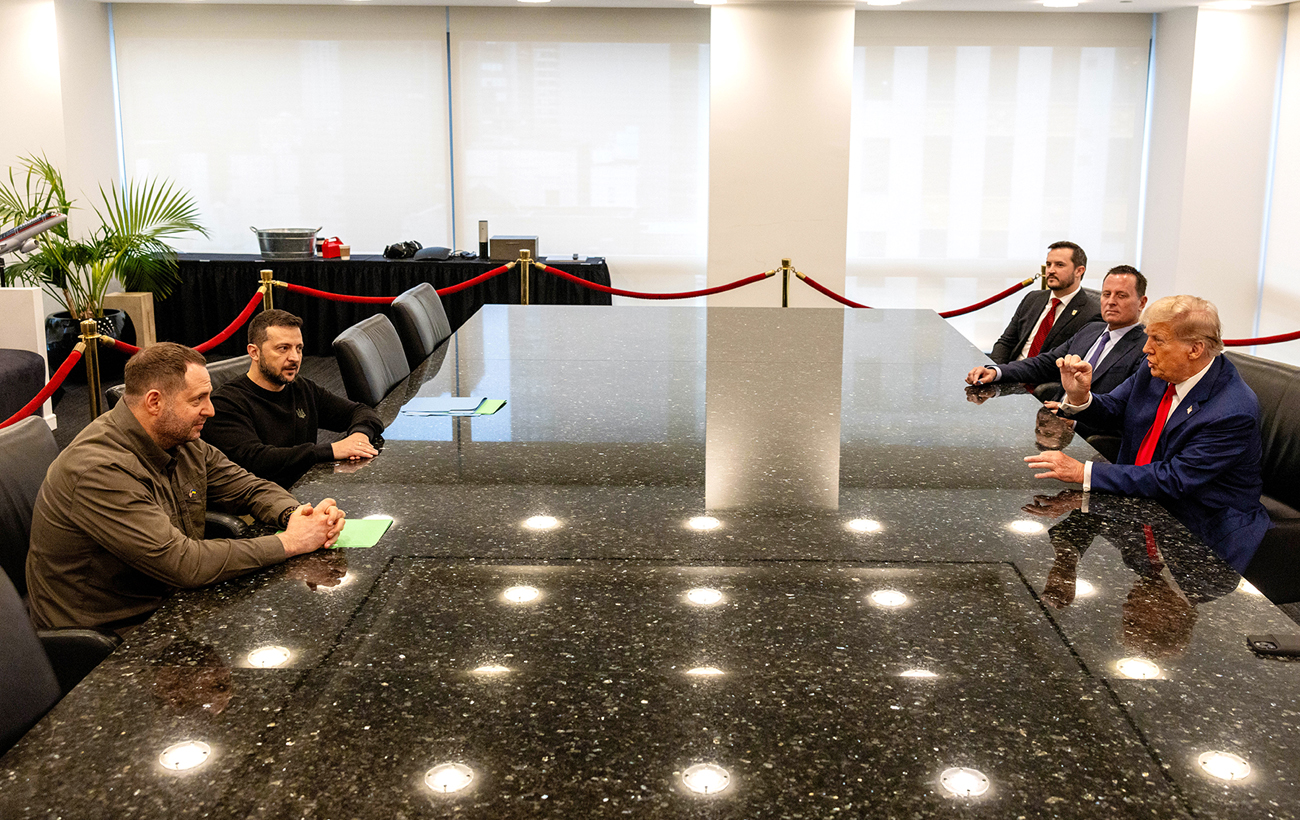
Zelenskyy and Trump meeting in New York (photo: Getty Images)
The obvious problem is that Russia categorically disagrees with any withdrawal from the current line of contact, nor to the February 2022 borders, nor even more so to the 1991 borders (even though the 1991 borders have become somewhat less common in public statements by the Ukrainian leadership). Russian President Vladimir Putin's baseline position, outlined in a summer ultimatum, includes demands for Ukraine to surrender even parts of the Kherson and Zaporizhzhia regions currently under Ukrainian control. The reality on the ground compounds the challenge. In recent months, Ukraine has been slowly losing territory in the Donbas rather than reclaiming it. Meanwhile, Russia has intensified its efforts to secure as much land as possible before any potential negotiations.
As a result, a theoretically possible option is when the Donetsk, Luhansk, Kherson, Zaporizhzhia regions and Crimea will remain inscribed in the Constitutions of both Ukraine and Russia as belonging to them. Moreover, there have been many similar situations in world history. And in fact, both sides will remain "on their own side", controlling the territories they will occupy until the end of the active phase of hostilities.
Such a "frozen conflict" scenario is deeply unpopular in both Kyiv and Moscow. It looks likely, but it is not the only possible one. In addition, taking into account the current "realities on the ground," it assumes that part of the Kursk region of Russia will remain under the control of Ukraine - for Moscow, this is, of course, an unacceptable scenario. Therefore, on the sidelines, there are speculations about a possible "exchange," for instance, of part of the Kursk region for the territories of the Kharkiv region captured by the Russians. Or - what is more likely - for the Zaporizhzhia nuclear power plant (NPP), which brings Russia many more problems than benefits. But for now, this is nothing more than speculation.
Ensuring a true ceasefire amid zero trust between the parties is another critical challenge. A theoretical solution could involve deploying peacekeeping forces.
According to several RBC-Ukraine interviewees, the idea of introducing peacekeepers will also be present in the "Trump plan" when it finally appears in some form, with the indication that the peacekeepers should be from Europe. This is completely in line with Trump's concept that "European security is Europe's responsibility."
In Ukraine, the attitude towards this idea is still very cool. After all, the introduction of peacekeepers is an agreement to the same "freezing of the conflict" indefinitely, which is unacceptable for Kyiv. There are also purely practical difficulties - the contact line is too long, which must be kept under control, much longer than, for example, in Korea or Lebanon.
It is not a fact that major European countries will so easily agree to send a significant contingent of their forces to Ukraine, where they will be exposed to enormous risk. Potentially, the scope of the peacekeeping mission could be expanded at the expense of third countries and transferred to a UN mandate, with the involvement of conditional Bangladeshis or Argentines - but at the moment, this is an exclusively theoretical, speculative scenario.
Security guarantees for Ukraine and NATO membership
An issue no less critical than territorial matters is the need for security guarantees for Ukraine to prevent renewed Russian aggression. These guarantees will be essential regardless of how the situation "on the ground" is ultimately resolved.
Ukrainian sources from the The New York Times said that security guarantees precede territorial concerns. After speaking with Ukrainian military and political leaders, RBC-Ukraine concluded that there is no unified perspective on the matter. "My personal opinion is that preserving Ukraine as a state is the priority. We need a foothold from which we can eventually reclaim our occupied territories when conditions allow. But not everyone agrees with me," one source told RBC-Ukraine.
Undoubtedly, the most robust guarantee for Ukraine would be NATO membership, which would provide collective security under Article 5 of the North Atlantic Treaty to at least the territories currently under Ukrainian control.
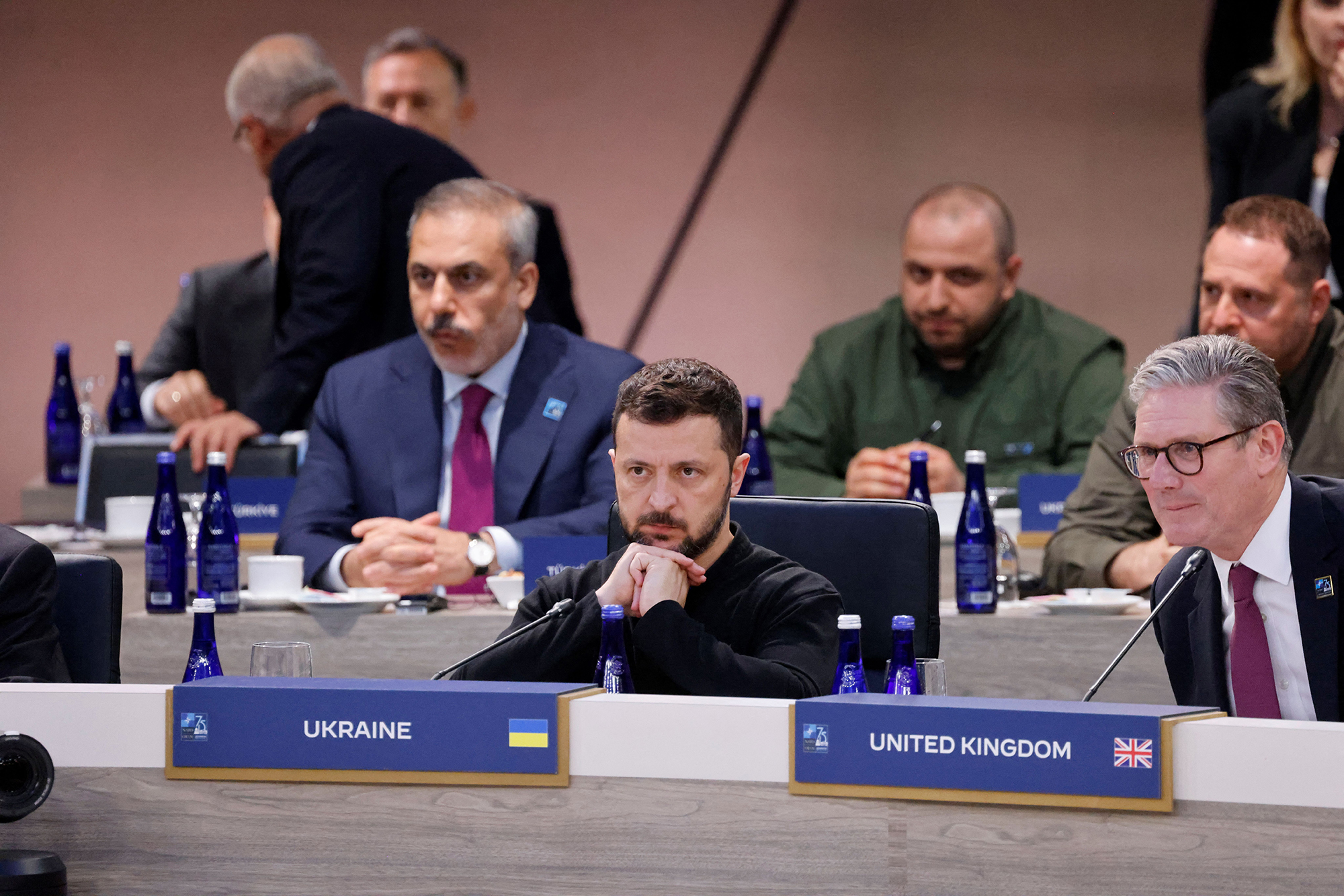
Zelenskyy at the NATO summit in Washington (photo: Getty Images)
The first step toward this goal is obtaining an official invitation to join the Alliance, a key point in President Zelenskyy's Victory Plan. Partial easing of restrictions on long-range strikes deep into Russian territory appears to be the limit of boldness the outgoing Biden administration is prepared to entertain. However, Ukrainian officials still hope Biden might extend such an invitation to NATO by the end of his term.
Another concept circulating among Ukrainian leadership involves securing military-political and economic security guarantees. These might prove more effective than purely political commitments. In simple terms, if Western countries establish significant business interests in Ukraine, those businesses could pressure their governments to protect these assets in the face of new Russian aggression.
According to one RBC-Ukraine source, this rationale underpins specific points in Zelenskyy's Victory Plan, including the development of lithium deposits - an essential metal in the era of electronics and electric vehicles.
"The downside to such ideas is that they don't prioritize restoring the 1991 borders. Republicans take a pragmatic approach. For instance, if you have lithium in Zhytomyr, they'll understand it needs protection. But what about Donbas? Coal? They don't need coal: they have their own. Arguments about 'our land' and 'our people' don't resonate with them. They might say, 'You lost Donbas ten years ago. Those aren't your people anymore,' and so on," the source explained.
Whom can Ukraine rely on and what is its endurance level
Donald Trump's victory has left Ukraine's European allies visibly disoriented. In fact, all of them, either openly or tacitly, supported his opponent, Kamala Harris, and are now grappling with a new, unpredictable reality. The lack of concrete information about Trump's intentions regarding Ukraine and Europe as a whole has fueled various capitulationist ideas, such as calls for a rapid "freezing of the conflict."
As the war enters its third year, Ukraine's most steadfast supporters remain the Baltic states and northern European countries. Despite their impressive aid contributions relative to their size, these efforts are far from sufficient for Ukraine's needs.
The situation with larger European countries is more complex. Germany is facing a deep political crisis ahead of its elections. Chancellor Olaf Scholz was the first G7 leader to lift the informal taboo on phone calls with Putin. However, a potential change in leadership in Berlin could be promising for Ukraine. Friedrich Merz, Leader of the Christian Democrats, has taken a more decisive stance on Ukraine compared to Scholz. Under Labour leadership, the United Kingdom has maintained its pro-Ukraine policy. Yet insiders suggest that London's support has become less resolute. Moreover, Prime Minister Keir Starmer's government is struggling with domestic issues and plummeting approval ratings.
Under such conditions, France could emerge as Europe's leader on the Ukraine issue, particularly given President Emmanuel Macron's vision of a Europe less dependent on the US. This concept, which predates the Russian invasion, gains renewed relevance amid Trump's isolationism. However, Macron's political clout has weakened after this summer parliamentary elections, and his proposal to send French troops to Ukraine, a topic of discussion earlier this year, has been decisively rejected by French society.
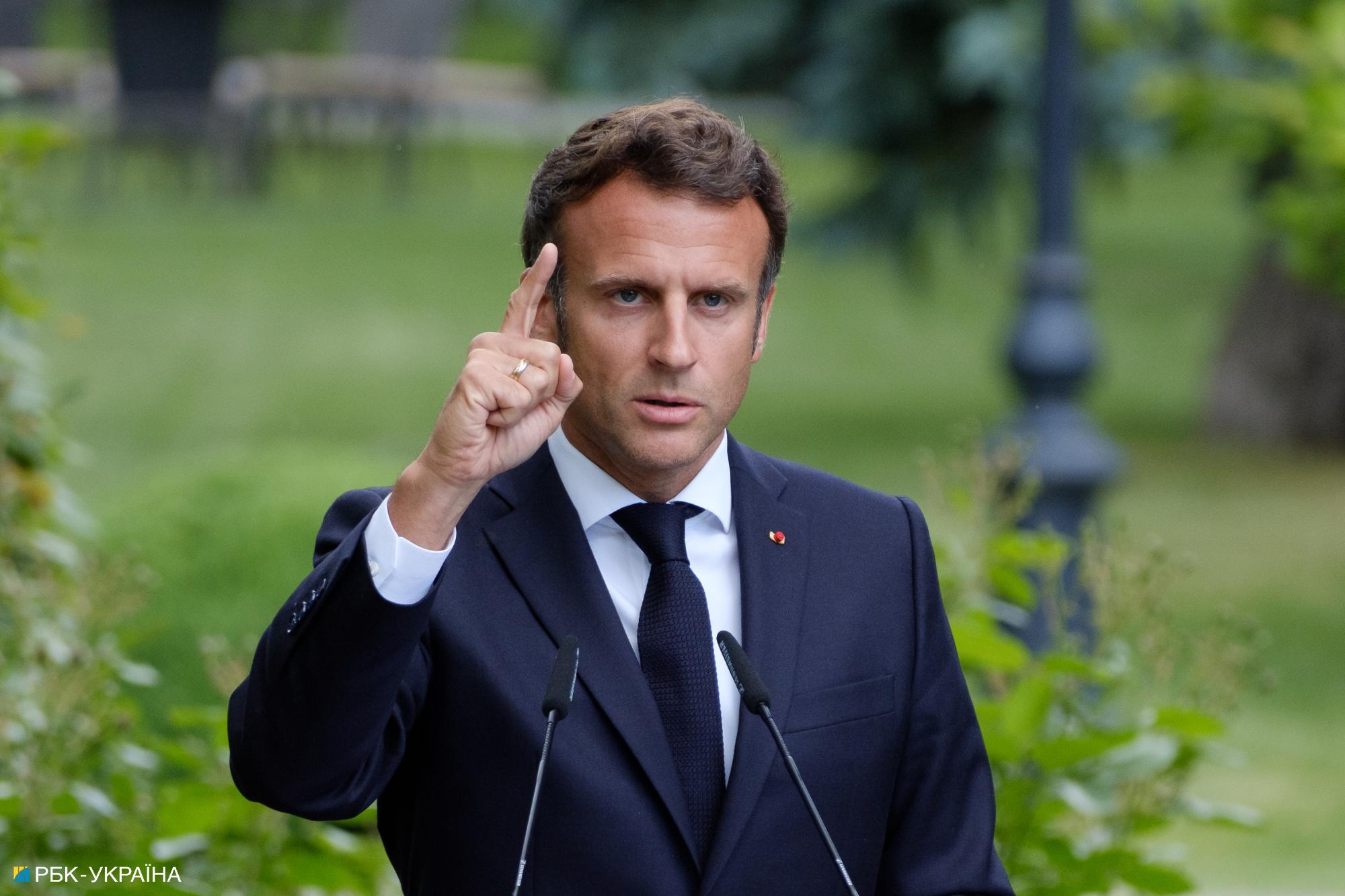
Emmanuel Macron at a briefing in Kyiv (photo: Vitalii Nosach / RBC-Ukraine)
Without US support, Ukraine would struggle, if not fail, to sustain its defensive war, let alone conduct counteroffensives. Especially if the radical Trumpists implement their campaign slogan, "Not a single dollar more for Ukraine!" Volodymyr Zelenskyy also directly admits this. "If they (the US - ed.) cut aid, I think we will lose," he said in an interview with Fox News, Trump's favorite TV channel.
Even if Trump initiates a plan to "force Ukraine into peace" and abruptly halts all assistance, Ukraine won't immediately lose its capacity to resist. Several factors provide a buffer:
-
Aid from the Biden Administration: Biden's administration will likely deliver several multibillion-dollar aid packages before leaving office.
-
Existing agreements: Ukraine has already secured numerous agreements on financial and military aid for the coming years from various countries and organizations.
-
Defense contracts: Multi-billion-dollar contracts for arms production are in place and unlikely to be canceled.
-
Domestic production: Ukraine's domestic arms manufacturing is setting records.
But how long will this be enough? None of the interviewees of RBC-Ukraine can give a clear answer. Much also depends on how Trump will implement the second part of his plan - to "force peace" on Russia. There are different assessments regarding the ability and desire of the aggressor country to continue fighting for an indefinite period. On the one hand, the Kremlin does not want to embark on a new wave of mobilization, and surrogate options such as involving North Koreans do not fundamentally solve the problem of the shortage of manpower. The Russian economy, on the one hand, is very overheated and may collapse next year, on the other hand, it may last for more than one year in its current mode.
"The US has tools, a carrot, and a stick, to influence the Russians. For example, they can loosen sanctions somewhere, like "we will give you a little more economy outside the BRICS, within which you are not doing very well yet - and in return, you will make such and such concessions," says one of the sources.
In any case, the consensus forecast of RBC-Ukraine's sources in the country's leadership suggests that the end of hostilities next year, according to Trump's plan or some other scenario, is quite likely but not guaranteed.
Sources: materials by The New York Times, The Washington Post, Bloomberg, and other Western media, as well as off-the-record comments by high-ranking RBC-Ukraine sources in the Ukrainian authorities.
